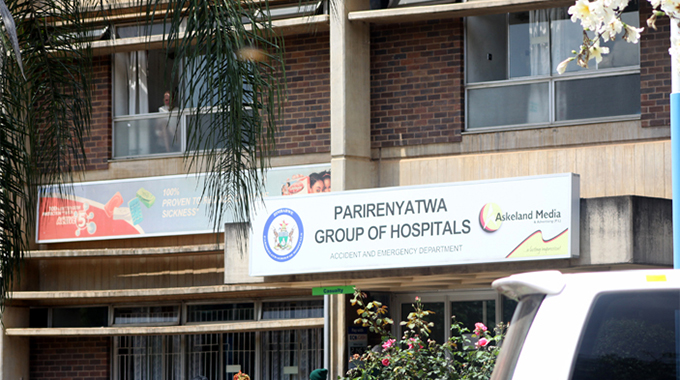Health workers ready to defend nation
Herald Reporters
As Zimbabwe deepens the fight against Covid-19 by intensifying the screening, testing and isolation suspected cases, health workers remain determined to save lives despite the obvious risk associated with their job.
Government is also ramping up prevention measures to flatten the curve, following a recent spate of confirmed cases.
The Herald tracked down several frontline health workers to find out how they are coping with the fight against a dangerous and invisible enemy.
A superintendent at Wilkins Infectious Diseases Hospital in Harare, Dr Hilda Bara, said she had put everything in God’s hands.
“There are times when you leave the isolation facility deep in thought on whether you have over exposed yourself or not, but faith in God as well as our infection prevention and control systems has kept us going,” she said.
Wilkins is the first facility in Zimbabwe to be designated as an isolation centre for Covid-19 patients before decentralisation across Zimbabwe and Government’s upgrade of preparation saw centres in most provinces and further Covid-19 patient beds designated in Harare.
Dr Bara is ordinarily supposed to be dealing with administration duties, but now has to do the clinical work as well, due to the increased number of Covid-19 patients referred to Wilkins.
She now has to undertake relatively difficult tasks, including resuscitating patients, in a process described as “very manual”.
To reduce chances of individual errors that might expose them to contracting the virus, Dr Bara said they had devised a grand strategy.
“We try to make sure that when we carry out certain tasks involving direct contact with the infected. We go either in twos or threes and the purpose of the other people is just to make sure you are doing the right thing as far as infection prevention and control is concerned,” said Dr Bara.
At Wilkins, each team manning the facility at any given time comprises two doctors, three or four nurses, a nurse aid, a general hand and two sprayers.
She added that since Covid-19 was caused by a new virus, health personnel were forced to read widely available current literature to keep pace with studies and information on what was happening elsewhere, combine that with the general practice and standards of dealing with outbreaks, and guide team members accordingly.
As a family woman, Dr Bara said one of her challenges has been to balance between home and work since they were now working even on Sundays.
“We have little time to spend with our families. It has not been an easy road but its work that has to be done,” she said.
A laboratory scientist from the National Microbiology Reference Laboratory in Harare, Mr Tatenda Takawira, said scientists were ready to combat Covid-19 through testing and confirming positive cases to enable their management.
He said what was happening with Covid-19 now was synonymous with what happened with HIV testing when viral load testing started.
“If you remember very well, viral load testing started with centralised systems where all samples would come to Harare for confirmation, but with advances in technology, this process has since been decentralised,” said Mr Takawira.
Mutare city health services director Dr Anthony Mutara said the work being done by health workers on the frontline was tremendous.
“We were plunged into the deep end when the disease broke out because it is something new and our health system was not well. But these men and women came forth and continued working despite the challenges.
“Initially there were some tears as they feared contracting the virus, but they have embraced the challenge and are ready to keep fighting,” said Dr Mutara.
He added that everyone, from general hands to doctors, was a key player in the fight against Covid-19, but called for increased support in the form of personal protective equipment, to ensure no one dies in line of duty.
For Mr Moses Tawedzera, an environmental health officer with the Kariba Municipality, his desire is to prevent incidences of Covid-19 in the district.
He has been going around the potential hotspots in Kariba, including the Nyamhunga and Mahombekombe vegetable markets, to educate people on the need to observe hygiene.
“The first thing that comes into my mind is to stop the spread of Covid-19, thus protecting the community,” he said.
Mr Tawedzera said being an environmental health officer demands that he should demonstrate what is supposed to be done in terms of disease prevention and control.
His family prays for him daily so that he is strong and careful when dealing with infectious diseases. Mr Tawedzera is happy that companies and individuals are changing their behaviour towards coronavirus.
Midlands Provincial Medical Director, Dr Simon Nyadundu, said most health workers in the province were volunteering to train to handle Covid-19 cases should they arise.
A dedicated team is ready to get into the frontline to assist patients in the event cases of coronavirus occur. District centres have also been set for patients, with Gweru Provincial Hospital being the provincial centre.
“All the centres have teams ready for duty,” said Dr Nyadundu.







Comments